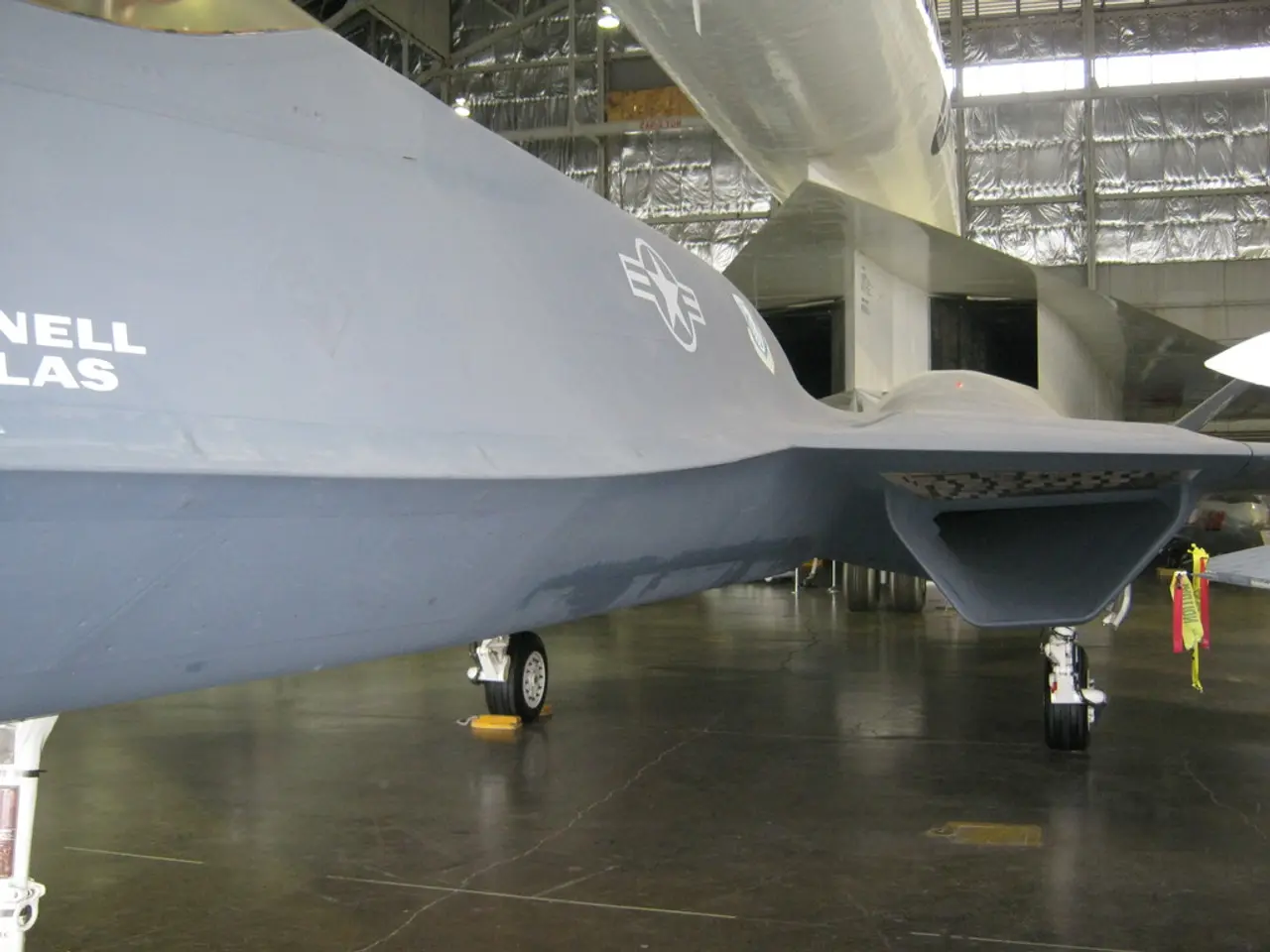Thai Airways Announces Detailed Five-Year Investment Plan Valued at 170 Billion Baht
Thai Airways Announces Major Investment Plan for Fleet Modernization, Cabin Upgrades, and Infrastructure Development
Thai Airways International has unveiled a significant five-year investment plan, worth 170 billion baht, aiming to steer the airline into a new era of operational excellence and robust corporate governance. The plan, which focuses on fleet modernization, cabin upgrades, and infrastructure development, was announced ahead of the airline's return to the Stock Exchange of Thailand trading on August 4, 2025 [1].
The fleet modernization aspect of the plan sees Thai Airways allocating 120 billion baht specifically for acquiring new, next-generation aircraft. Payments for these aircraft will be aligned with delivery schedules throughout the five-year period. The fleet expansion aims to increase the number of aircraft from the current 78 to 150 by 2033, almost doubling the fleet size [1].
In terms of cabin upgrades, a budget of 20 billion baht has been earmarked for comprehensive refurbishment on existing aircraft. This upgrade program is scheduled to begin in 2027, aiming to enhance the passenger experience and remain competitive [1].
The plan also includes substantial investments in infrastructure development, reflecting an emphasis on operational efficiency via technological upgrades. Part of this investment will go towards improving digital systems and asset maintenance capabilities [1].
The airline's current cash position exceeds 120 billion baht, as confirmed by Cherdchome Therdsteerasukdi, Chief Finance & Accounting Officer [2]. The funding strategy reflects careful financial planning that balances growth ambitions with prudent risk management. Thai Airways plans to secure additional funding through long-term borrowing facilities for 2027, when new aircraft deliveries are scheduled [2].
Thai Airways' balance sheet has significantly improved, with cash and cash equivalents rising from 22 billion baht to 152 billion baht by Q1 2025. This improvement is reflected in the debt-to-equity ratio, which has improved from 12.5 times in 2019 to 2.2 times by Q1 2025 [2].
The airline is also committed to comprehensive digital transformation across all operational areas. The digital strategy extends to operational systems, with investments in maintenance management, crew scheduling, and passenger service technologies [2].
Thai Airways has already made strides in customer satisfaction, with rates increasing from 94% in 2019 to 98% in 2024. The airline targets increasing direct online sales from 19% to 25% [2].
The new board, comprising 11 members with expertise across aviation, finance, law, strategy, marketing, and digital technology, is committed to steering THAI into a new era defined by operational excellence and robust corporate governance [3].
This investment represents one of the largest capital injections in the Asian aviation sector and positions Thai Airways for substantial growth and modernization over the next decade. The plan aligns with broader sector developments, such as airport expansions at Suvarnabhumi Airport to support increased capacity, indirectly benefiting Thai Airways’ operations [3].
In April 2024, Thai Airways established an Overseas Thai Contact Centre, providing multilingual support across 24 countries in six languages [4].
References:
[1] Thai Airways International. (2025). Thai Airways Announces Major Investment Plan for Fleet Modernization, Cabin Upgrades, and Infrastructure Development. Retrieved from https://www.thaiairways.com/news/thai-airways-announces-major-investment-plan-for-fleet-modernization-cabin-upgrades-and-infrastructure-development
[2] Therdsteerasukdi, C. (2025). Thai Airways' Current Cash Position Exceeds 120 Billion Baht. Retrieved from https://www.thaiairways.com/news/thai-airways-current-cash-position-exceeds-120-billion-baht
[3] Sangsnit, L. (2025). Transition to Private Sector Operation Significant for Thai Airways. Retrieved from https://www.thaiairways.com/news/transition-to-private-sector-operation-significant-for-thai-airways
[4] Thai Airways International. (2024). Thai Airways Establishes Overseas Thai Contact Centre. Retrieved from https://www.thaiairways.com/news/thai-airways-establishes-overseas-thai-contact-centre
- The international airline industry is witnessing a significant shift, with Thai Airways' five-year investment plan valued at 170 billion baht, focusing on technology, business expansion, and infrastructure development.
- Thai Airways is aiming to rejuvenate its fleet by investing in new, next-generation aircraft, earmarking 120 billion baht for fleet modernization.
- Beyond fleet modernization, the airline has set aside 20 billion baht for cabin upgrades aimed at enhancing the passenger experience and remaining competitive.
- The plan also includes substantial investments in digital systems and asset maintenance capabilities, reflecting an emphasis on operational efficiency.
- As part of its financial strategy, Thai Airways is planning to secure additional funding through long-term borrowing facilities in 2027, when new aircraft deliveries are scheduled.
- Thai Airways is exhibiting steady growth, with its balance sheet showing an improved debt-to-equity ratio and cash reserves, and it is committed to comprehensive digital transformation across all operational areas.








